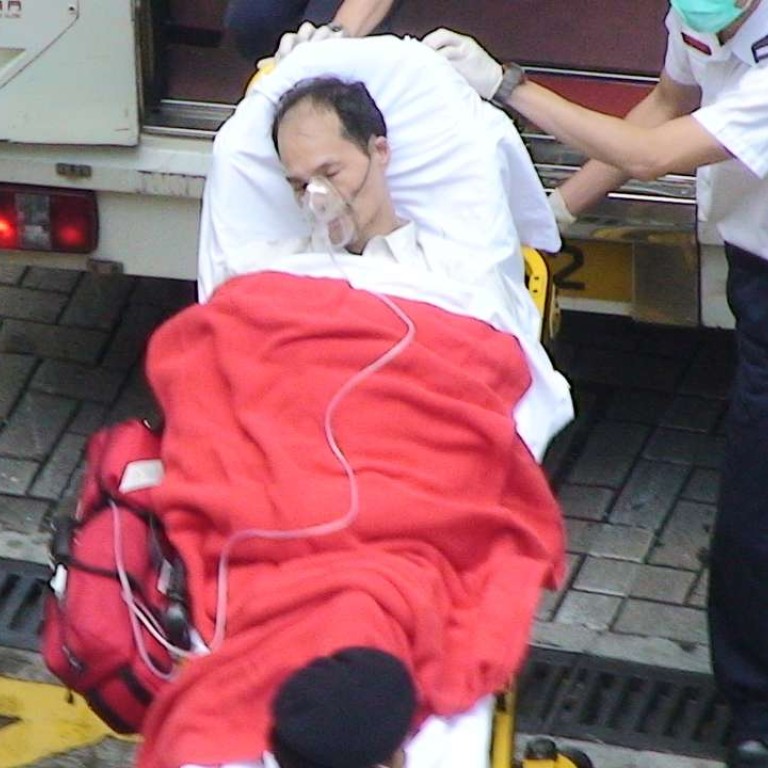
Notorious Hong Kong gangster Yip Kai-foon, who inspired hit film Trivisa, dies in hospital
Yip Kai-foon was known for wielding AK-47s while robbing jewellery stores in the 1980s
Yip Kai-foon, a notorious Hong Kong gangster known for holding up jewellery stores in the 1980s with an AK-47, has died in a public hospital, aged 55.
One legislator remembered the violent criminal as a committed advocate of prisoners’ rights, and a “loving and optimistic man”.
Formerly Hong Kong’s most wanted man, Yip was serving a 36-year stint in the maximum-security Stanley Prison for possession of firearms and escaping custody in 1989.
He had been in custody since 1996, when he was rearrested after a shoot-out in Kennedy Town, during which he was shot in the spine, leaving him wheelchair-bound.
Yip publicly expressed remorse for his crimes in 2010.
“I definitely regret the wrong things I did in the past. My family experienced great trouble, and had to bear the burden and the worrying. Society was also hurt,” he wrote in a five-page letter.
It was understood that Yip, who became a Christian in 2004, had cancer and needed regular care in prison and public hospitals.
On April 1 he was sent to Queen Mary Hospital in Pok Fu Lam, the same hospital from which he made his daring escape 28 years earlier.
While he was in hospital, Yip’s “condition deteriorated and he was certified dead at 1.02am on Wednesday,” the Correctional Services Department said in a statement.
A department spokeswoman did not comment on whether he had had cancer, citing privacy concerns. Yip could have been released in 2019 at the earliest, with good behaviour.

Legislator Leung Yiu-chung, who helped Yip fight for prisoners’ rights for 15 years, expressed shock and sorrow over his sudden death.
He remembered Yip as a “loving and optimistic man who cared a lot about his [fellow inmates]”, despite the gangster’s violent image.
Leung said his first encounter with Yip came in 2002.

“Yip once said his neighbour in the adjacent cell had been coughing days and nights,” the lawmaker said. “Yip wanted to give him warm water to make him feel better. But back then, prisoners were not given any warm water or a thermal mug.”
“So he asked his lawyer to contact me, hoping that I could help him to fight for better treatment for prisoners. We succeeded at the end,” he said, of the eventual change in the rules over hot water for prisoners.
Born in Guangdong province, Yip came to the city illegally when he was 17 and gained notoriety in the 1980s for jewellery store heists using machine guns, in Tsim Sha Tsui and Central.
In a series of robberies over more than ten years, he made off with around HK$20 million.
In 1985, he was sentenced to 16 years’ imprisonment for firearms offences. But four years later, he escaped from Queen Mary, where he had been receiving treatment.
After that, Yip’s gang continued with several robberies in the 1990s, spraying bullets during getaways.

After being rearrested in 1996, the mobster was sentenced to 41 years for offences related to the possession of arms and ammunition without licences and escaping from legal custody. That sentence was later reduced to 36 years.
The lives of Yip and two other mobsters – Kwai Ping-hung and Cheung Tsz-keung – were detailed in Trivisa, a film which recently won five awards – including best film – at the 36th Hong Kong Film Awards.

